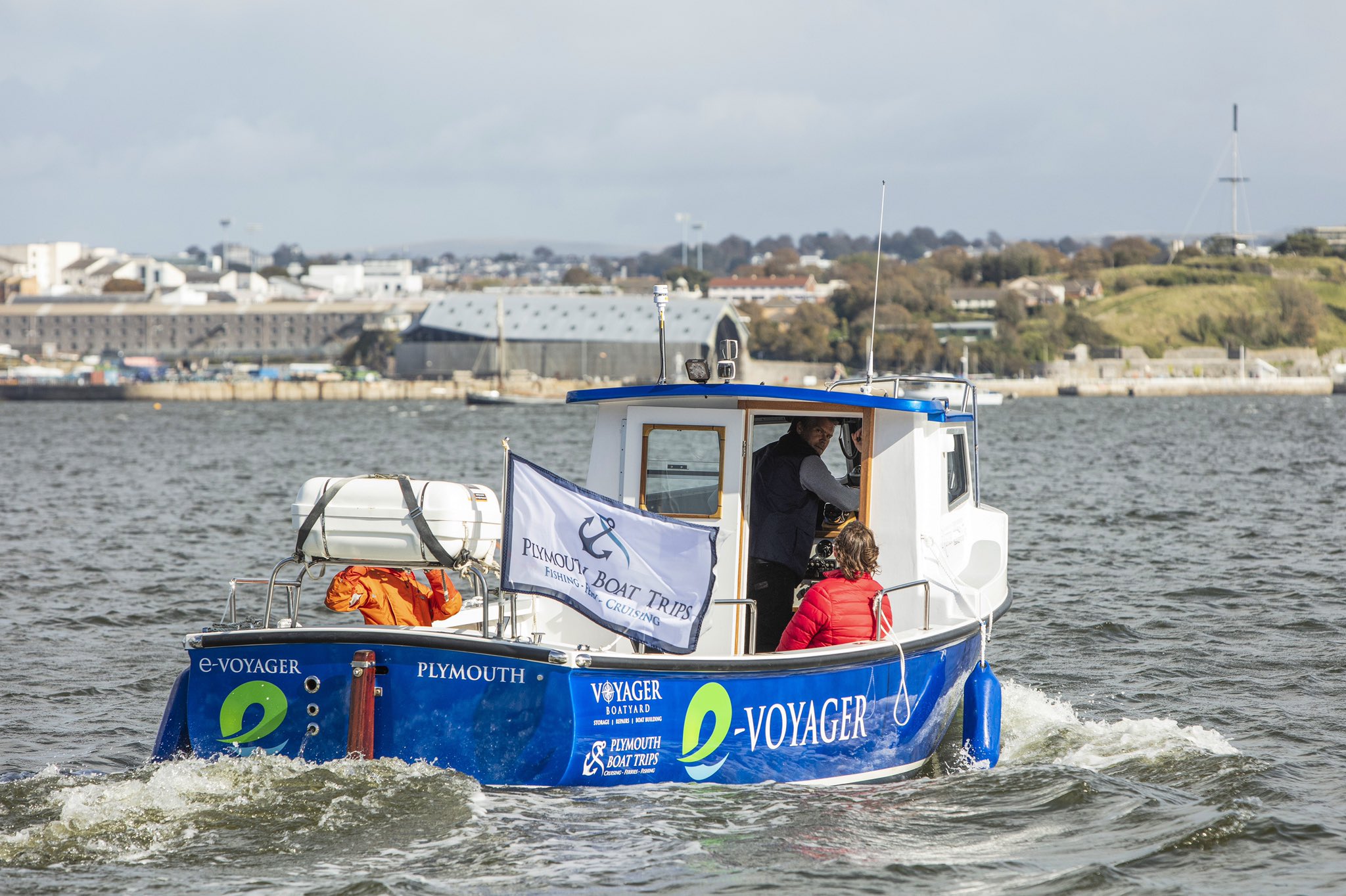The Centre for Future Clean Mobility partners with businesses to develop low-emissions, high-efficiency integrated power systems for applications in the aerospace, automotive, marine, and rail sectors.
The CFCM has officially set sail with a successful bid to develop the e-Voyager, the UK’s first fully electric Domestic Passenger Vessel in partnership with Plymouth Boat Trips, EV Parts, Plymouth University, Teignbridge Propellers and Voyager Marine Ltd. The project is funded through the Clean Maritime Call, from Maritime Research and Innovation UK (MarRI-UK) supported by the Department for Transport, which was launched to support the UK’s drive towards zero emission shipping.

The e-Voyager will offer clear environmental benefits: originally a conventional diesel boat, the Mermaid (in the above photo) will be converted to electric drive using repurposed Lithium ion batteries, which will drastically reduce both noise and air pollution from the vessel. What’s more, the new vessel won’t need any fuel and so will be much cheaper to operate. The motors, energy storage, control and charging systems will also be tested in a real-world environment, enabling the team to gain approval from regulatory bodies so they can be used in vessels across the sector and, eventually, carry passengers.
Through the ERDF-funded Marine Business Technology Centre, CFCM is helping EV Parts UK to integrate and optimise the new electric power train – from the batteries to the motors, and perhaps to wireless charging of the boat in the future.
“The University of Exeter has supported the development and ongoing feasibility study with e-Voyager. This support has enabled us to learn how best to maximise the fully electronic propulsion system through analysis of the data collected and through enhancements to the system throughout this period. This has included the recent addition of a large solar array. Plymouth Boat Trips and partners will continue to assess the environmental and operational challenges and advantages through further testing during this winter.
Plymouth Boat Trips are proud to have worked alongside the team at University of Exeter."Andy Hurley, Project Manager at Plymouth Boat Trips

Work will begin imminently at Voyager Marine, and we expect the e-Voyager to be afloat alongside Plymouth Boat Trips’ existing boats, in late summer this year, followed by a 150-seat electric ferry in 2021.
The Centre for Future Clean Mobility partners with businesses to develop low-emissions, high-efficiency integrated power systems for applications in the marine, off-highway, rail, defence, and energy sectors.
Website by NOSY Creative Agency